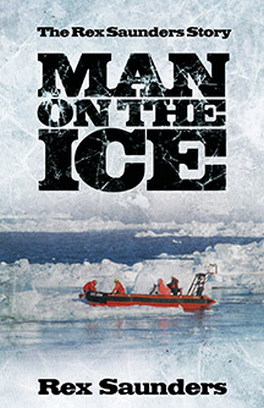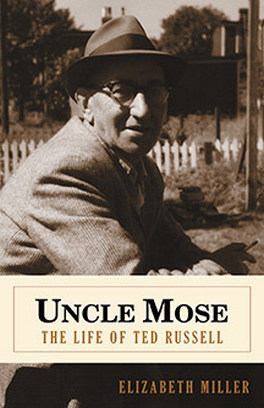Each year, thousands of people visit Bob Bartlett’s boyhood home located in Brigus, Newfoundland and Labrador, to catch a glimpse of this famous sealing captain’s amazing life. Hawthorne Cottage has been designated a National Historic Site. The Log of Bob Bartlett captures details and experiences that are not widely known about his forty years of adventures. His log details his two most historic feats—his journey with Robert Peary to reach the North Pole and his heroic deed aboard the Karluk—yet it also sketches his early life and some of his most memorable ice travels during and after the Great War. Bartlett made twenty-eight excursions into the Arctic, yet one wonders what drove this urge for discovery, especially to the most frigid and unforgiving of places. He has been quoted as saying, “The truth was I could not stop myself in pursuit of adventure. I was committed to the Arctic. I’d got the poison in my veins.”
The Log of Bob Bartlett
by Captain Robert A. Bartlett
I didn’t sign up on that first deep-sea voyage in the fall of 1893, without a good deal of thinking. For though I was eighteen and had discovered that I was good enough to handle my father’s schooner, I well knew that putting off in a big ship was to be an entirely different kettle of fish. In the eyes of my friends and family, I was a seafaring man; in the eyes of the law I was nothing.
The law says that you have to do your apprenticeship first and according to figure. Four years must be spent to get a second mate’s papers; another year for first mate and a sixth year for Master Mariner. And these years have to be real years. They don’t count in-between times. You have actually got to be on a ship every one of the 365 days of them and see service on each day. There is no getting around the law on such matters.
One thing that made me think hard was the sight of my father busying himself with our little schooner, the Osprey, which lay at the dock unloading her fish and skins which we turned in for credit at St. John’s; with this credit he would buy up supplies for our small store at Brigus. Father’s hair was just beginning to turn white; and though he was still the hale and hearty skipper I had always known, I saw he no longer put his back into the heavy lifts and straps the way he had done a few years before. It was with a pang I thought of adding to his burden by going off and leaving him. But if I was to succeed him later on I must get my “papers.” And to get them I must do more than seal and fish.
While our little vessel was lying alongside the dock, and after I had my invoices and other papers pretty well checked up, I took a walk out around the hills behind the town. I was thinking things over very seriously. I could see ahead a few years. What chance would I have along with the rest of the fellows if they had papers and I didn’t? I mean the legal papers that made them Master Mariners according to law. What good would it be if I could handle a vessel better than they, or as well as they, if the law didn’t have me down in its books?
After a few hours I came back to the dock. My mind was made up. For a while I was going to leave my friends and my family and all the Labrador fishing and sealing that I loved and go into merchant service. It was not a happy thought. We of the sealing fleet looked down on the merchant service. The big ships that took cargoes were to us what a baggage car, I suppose, is to a cowboy. They were just big carriers of freight. There was no particular excitement about them except that they went to interesting parts of the world.
But my mind was made up; I had to get ahead. So I set forth at once rummaging around the docks for a berth. There was one big freighter, the Corisande, a square-rigged ship of large tonnage and fine record. As luck would have it, I fell in with her skipper that very afternoon.
I can see him now. He was a little fellow, more like a vice-president of a bank than a commander of a big square-rigged vessel. He was small, dapper and had a well-groomed look that goes more with the commercial landsman than with the carefree sailor. I don’t say that sailors are not clean. They are the cleanest people in the world. But Captain Hughes had that clean look which comes from getting scrubbed up every morning in a bathtub at home and not from being scrubbed down by the wind and brine over the side. He wore gloves and he carried a stick with a shining ivory knob on the end of it. Below the ivory the stick had his initials in gold letters. The captain wore a stiff shirt with studs in it and a navy blue suit that was perfectly pressed. He certainly was the picture of a man who not only took great pride in himself but wanted to show the world that the sea was the finest profession going. There was just one thing about him that worried me. That was a nervous way he had of looking about him every now and then as if he were afraid something was going to happen, he didn’t know what.
“Good morning, lad,” said he, waving his stick as a naval officer might salute with his sword.
“Good morning, sir.”
“Fine morning,” he went on.
My feet felt nailed to the dock planking. I wanted to ask him for a job on his ship. I didn’t know how to begin. I had a desperate feeling that he was going to walk away if I didn’t say something. Finally I came right out with it.
“I’d like to go to sea with you, sir.”
He looked me up and down and just as if he had suddenly discovered my presence. I felt my face go red. I didn’t look like a sailor especially, though I was a good hearty lad with a fine coat of sunburn from a summer down among the islands. I didn’t even have any seagoing clothes on; just a cap and an old suit and an open-necked shirt that I guess was faded from scrubbing the fish oil out of it.
“What do you know about a ship?” said Captain Hughes.
“I just brought mine in,” I told him. “Just a schooner, sir; but she’s all right. I can steer and reef and I have been in the Hope and the Panther.”
“Very well,” said Captain Hughes briskly. “Be at the shipping office at three.”
That’s all there was to it.
Remember this was October, the time of the year when the summer hurricanes are over and the winter gales haven’t started yet. It was the ideal season for a trip down the Atlantic. I was to be an ordinary seaman before the mast and I had shipped for the round trip. As this was to be my first voyage, my mouth watered for the experience. Little did I dream that it would end in tragedy.
I went aboard the afternoon before we sailed. My personal gear I carried in a canvas sea bag and a big handkerchief tied together at its corners. Besides what I had on I took an extra suit of woollen cloth for the cold trip back, a change of underwear, two towels, a big razor my father had given me, and a spare pair of heavy fishing boots. When I opened my bag in the forecastle I found also a fine knitted muffler my mother had put in. Wrapped inside it was a jar of her best blueberry jam which she knew was my favourite sweet.
We were towed out of the harbour at dawn next morning. While I was busy about the pin-rails faking down the various ropes in neat coils I had a heavy depressed sort of feeling. Part of it was pure homesickness; but there was also a premonition of trouble lay ahead. I am not especially superstitious, but now I have learned to trust my hunches about the future.
That time on the Corisande I surely was right. Scarcely had we left the dock when a fight started on deck. One man knocked another unconscious with a blow of his fist. Of course many of the men had been drinking as they always do just before leaving port on a long cruise. I guess even the skipper had it a bit up his nose too.
It took us sixty-nine days to make Pernambuco. The usual run was about thirty days. And all the while it seemed as if the Corisande knew she was doomed. I suppose I am stretching my imagination to say such a thing; but the others felt it as well as I. There were times when she suddenly trembled from stem to stern for no reason at all. There was more minor sickness aboard than there should have been. The ship’s company were quarrelsome and ill at ease. At times a strange silence descended on all hands and we looked curiously into one another’s faces to see if anyone knew the answer. A ship’s cat we had aboard disappeared for no reason at all one calm night.
Captain Hughes must also have felt the shadow over us. He was no longer the same smart sailor man I had signed on with. He stayed much in his cabin and when he came out he was irritable and captious.
About halfway down my watchmate got laid out with a bad cut over his eye. As a result I did double wheel tricks, which in turn led to a boil on my neck getting chafed by dirty oilskins I hardly ever took off in the long hard watches. Soon the boil turned into a carbuncle that tormented me day and night with pain. The skipper wanted to lance the carbuncle. He declared that was the only way to cure it. Nearly every day he came at me with a long, thin knife he’d got out of the ship’s medicine chest. But in his peevishness at my timidity his hand shook so that I was afraid to let him try it. This made him madder than ever. It got so that I was afraid to turn in. I felt sure he’d operate on me while I slept. Anyway, the pain was too dreadful to let me sleep. What finally saved my life was a series of hot barley poultices the cook put on when the old man wasn’t looking.
Incidentally, this cook, like many cooks on such a voyage, was a great friend of all us sailors. I never forgot how, on the first day out, the cook caught me washing my teeth with fresh water. He said I’d have to go without that much water for my coffee because fresh water was so scarce.
One day the captain had a regular forepeak row with this same cook. We had all been complaining about the beef being too salty and were tired of eating salt horse every meal. The cook usually took it out of the kegs and boiled it the same day. We had a big Swede who threatened to throw the fellow overboard if he didn’t improve the grub. So the cook made a sort of crate that would hold about fifty pounds of salt horse. He spliced a rope to this crate and hung it from the jib-boom so it would trail in the water. He figured this would iron out some of the brine.
The captain saw this gadget one day and threw a fit. “What sort of river barge do you think I’m running?” he yelled at the cook.
Cookie shook in his shoes.
“Haul that truck aboard!” screamed the old man. “Don’t you know that if we get our horse too fresh that gang of heathen down forward will eat too much of it?”
Finally we hit Pernambuco and beached the cargo. As we’d lost so much time, we took only ballast for the return. The weather was very bright with fresh wind night and day.
The Corisande now suddenly changed her ways. She began to make speed, as though, now that her death was getting close, she got sort of panicky and terrified. When the wind stiffened to half a gale she stood up straight and took it without a reef.
We raced another ship north. She had longer spars and carried more, but we left her hull down astern on the fourth day. Even this triumph didn’t cheer us any.
The crew began to feel surer than ever something was coming. How did we know? We didn’t. A man often feels that way on a ship that is making her last voyage.
“All dead below there?” sings out the mate one afternoon down the forecastle hatch. He’d never heard so much silence, he said. Nobody answered.
Off Cape Cod real cold hit us. The wind backed around into southeast by south. The sun faded out. Snow flurries came with every squall. The days were dark and overcast. The steady whine of the wind through the rigging never stopped.
The skipper had her laid dead for Cape Race. I guess the wind must have stiffened as we were logging over ten knots right along. This was too much for the old Corisande. The mate came and stood by me at the wheel one day. His face was dark as the sky. He shook his head and grumbled: “She can’t stand this—she can’t stand this—” twice over, like that.
By this time the mate wasn’t on speaking terms with Captain Hughes. So he didn’t say anything about what was on his mind to the old man.
Things began to get bad in the afternoon watch of the day before the final tragedy. A heavy sea was running. Twice the Corisande stuck her nose, bowsprit and all, clean under. Two hands were busy chopping ice off her standing rigging. A big water cask lashed abaft the mizzen got adrift and nearly killed the cook. Sounding fore and aft showed she was making water. The heavy rolling and pitching and strain of the big spread we carried were pulling her seams right open.
We were due to round Cape Race the following morning. I had the middle watch—midnight to four a.m. Along about two I said to the mate, “We’re near land, sir.”
“You’re landstruck, young ’un!” he bawled back at me to make me hear above the racket of the wind.
It was as black as your hat. But I’d heard seabirds off the port bow. I knew that meant land.
At four a.m. I turned in “all standing”; that is, with boots and slicker on. I even kept the strap of my sou’wester around my neck. There’s no use denying it now, I was scared. What I was scared of, I couldn’t have said. But I knew that sure as sunrise something terrible was going to happen. And something did.
An awful crash that threw me out of my bunk waked me. I didn’t need to be told what it was. The ship had struck.
I rushed to the topside. To my surprise, the storm had disappeared. But the faint light of dawn showed me where it had gone. Ahead was a vertical black wall that jumped right out of the sea.
The cliff towered three times as high as our masts. I recognized it at once as the Devil’s Chimney, the most dangerous spot on the south shore of Newfoundland. Over its top the storm still roared. Long streamers of snow licked out toward our topmasts.
“We’ve got to work fast!” I heard the mate yell. His voice sounded high and sharp with excitement.
I knew what he meant; we all did. The will of God had put us into a lee that might last an hour or it might last ten minutes. With the storm centre so near and the wind shifting northward it would be in the west the minute the centre passed. Then our lee would be gone.
There was no confusion. We got our boats over the side. I ran below and put on all my best clothes under my oilskins. Just as we shoved off we got the first puff of wind from the northwest. It was like a knife. Minutes counted.
In the half light and drifting snow we felt our way in. The wind was coming in heavy blasts now. Surf was picking up. We could hear it booming against the cliffs to the westward. As I rowed I kept looking at the poor old Corisande standing there alone and helpless like a fat sheep surrounded by wolves with white teeth. If I hadn’t been so scared, I’d have cried.
Just before the gale’s fury came full in we found a narrow opening at the foot of which was a small sand spit. But before we could reach it the wind struck full force. The boat I was in swamped. We floundered around in the icy water and somehow dragged ourselves ashore. God, it was cold!
By a miracle we came through, all of us. We dragged our gear as far as we could above the seas that rolled higher every minute. As soon as we finished, I crawled around on the rocks to get a last look at the poor old Corisande. You see, I loved her. She was my first big ship. She had weathered the storm and brought us in safely. Now I knew there was no hope for her.
The most terrible thrill a seafaring man can ever feel comes when his ship goes down before his eyes. I shall never forget that thrill thirty years ago when the Corisande was being flung against the black south cliffs of Newfoundland.
I strained my eyes to get a last glimpse of the ship’s topgallant sails and royals as the huge combers sprang upon her with a smother of foam. Then a flurry of snow shut her all out. Big waves forty feet high were rolling in. They made a regular thunder when they struck. I climbed higher, but couldn’t seem to get clear of their spray.
Then, of a sudden, the snow stopped. I stood looking down into a dreadful, foaming mess of sea, boiling like a gigantic pot. In the centre of it was the Corisande. Her masts were gone—just a tangle of spars and rigging hung over her port bow. Her hull had broken clean across the middle. While I looked, her after deckhouse went over the side. Then her whole stern slewed and lifted bodily over the fore wreckage.
I felt sick all over at the sight. I shut my eyes. When I opened them again the Corisande was gone.
That was my first shipwreck.
Cold and miserable I rejoined the others who were huddled in a cleft in the rocks. For a while it looked as if we should all be drowned by the surf that roared at our heels, or frozen to death by the zero wind that slashed down upon us from the cliffs. When I saw the sufferings of some of the men less hardy than I, I realized what it meant to have had my years training down the Labrador with my father who had always insisted on us boys doing our full share of the work.
Finally one of the men said he knew where a fishing hut was on the plateau above us. He worked his way slowly up the dizzy cliff against which we crouched and finally reached the top. Here he was nearly blown into the sea by the blast which struck him. But he groped his way through the drifting snow and a few hours later staggered into the house he was looking for, where some fishermen had gathered to wait out the storm. When he told his story of the wreck they all hurried back with ropes and warm clothing and handed us up more dead than alive.
I reached home several days later. My mother was frankly overjoyed to see me again. What she wanted was to have me back safe and sound. But my father wanted to hear more about the wreck. To my surprise I found I couldn’t talk much about it. Since then I have learned that the loss of a ship affects a seafaring man much like the loss of a dear relative; and it pains him greatly to discuss the circumstances of the sorrow.
The voyage was not without its benefits. I had made a deep-sea voyage, and had taken the first step towards my master’s papers which I knew I must have if I were to succeed in my chosen profession.
First published in 1928, The Log of Bob Bartlett is very much a product of its time, but even the dust of 80 years hasn't dimmed the lively, compassionate, witty voice of its author.-- The Telegram --
Fascinating reading.-- The Independent --
Explorer's log a 'must-read'-- The Express --
A fascinating read for anyone with an interest in nautical history.-- The Western Star --
The Log of Bob Bartlett is recommended reading for students of leadership, particularly personal leadership in dire circumstance.-- The Northern Mariner --























